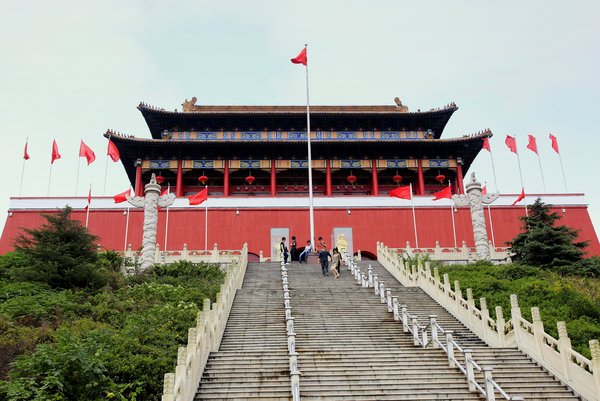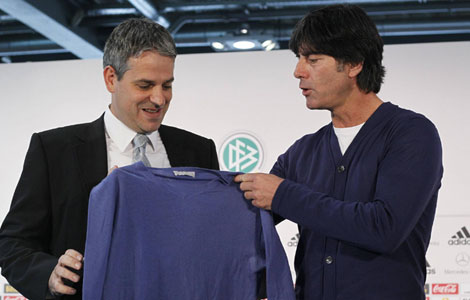Interest-free loans help Muslim women start businesses
Updated: 2011-10-11 19:07
(Xinhua)
|
|||||||||||
LANZHOU - After eight years' toil in a garment factory with a monthly pay of 500 yuan ($79) at most, Bai Fenglan has managed to become her own boss and run a rewarding business.
In December 2009, Bai, a single mother in Hui autonomous prefecture of Linxia in the northwestern Gansu province, set up a small halal food plant, along with several local housewives.
"My age put me at a disadvantage in the competition with young tailors in the garment factory, so I had to find another way to support my six-year-old son," Bai said.
The start-up, which manufactures quick-frozen dumplings and meat balls, was launched on a shoestring budget, but the business burgeoned after Bai and her partners, four other Muslim women, jointly applied for a 300,000-yuan interest-free loan from the prefecture's women's federation last year.
"We used the funds to purchase advanced machines and expand the workplace," said Bai, director of the plant.
By the end of 2010, the plant, covering 130 square meters, had created an output value of 840,000 yuan. Its products are well-received in Muslim communities in other parts of Gansu as well as in Qinghai province and Tibet autonomous region.
The interest-free loan program that Bai benefited from was launched across the country by the All-China Women's Federation, the Ministry of Finance, the Ministry of Human Resources and Social Security, and People's Bank of China in 2009.
The program targets women between 18 and 55 who are willing to pursue a career in business and have the ability to pay off the original loan, according to Zhang Yonghua, of the prefecture's work committee for women and children.
"Participants in the program are encouraged to start their own businesses. If not ready, they are also allowed to have a hand in the management of the business and receive dividends by becoming a shareholder," Zhang said.
Religious creeds require Muslim women to make family a priority, but do not ban them from seeking a career. However, according to Zhang, many Muslim women are confined at home as a result of traditions and poor education.
By late September, the loan, totaling 527 million yuan, had been granted to more than 15,000 women in Linxia prefecture.
In addition to making a profit, the program could also enrich Muslim women's lives as well as give them a stronger voice at home, said La Lixia, head of the prefecture's women's federation.
"I never imagined I'd be a shareholder of the family's business. Once I was only able to contribute labor, but now I can make money," said Ma Xiulan, a Muslim woman in the township of Daban in Linxia.
In May, Ma and her sister-in-law jointly applied for a loan of 60,000 yuan and used it in the operation of the family's cattle breeding business.
"Now, I feel more confident when voicing my opinion at home," she said.
Hot Topics
Libya conflict, Gaddafi, Oil spill, Palace Museum scandal, Inflation, Japan's new PM, Trapped miners, Mooncake tax, Weekly photos, Hurricane Irene
Editor's Picks

|

|

|

|

|

|







